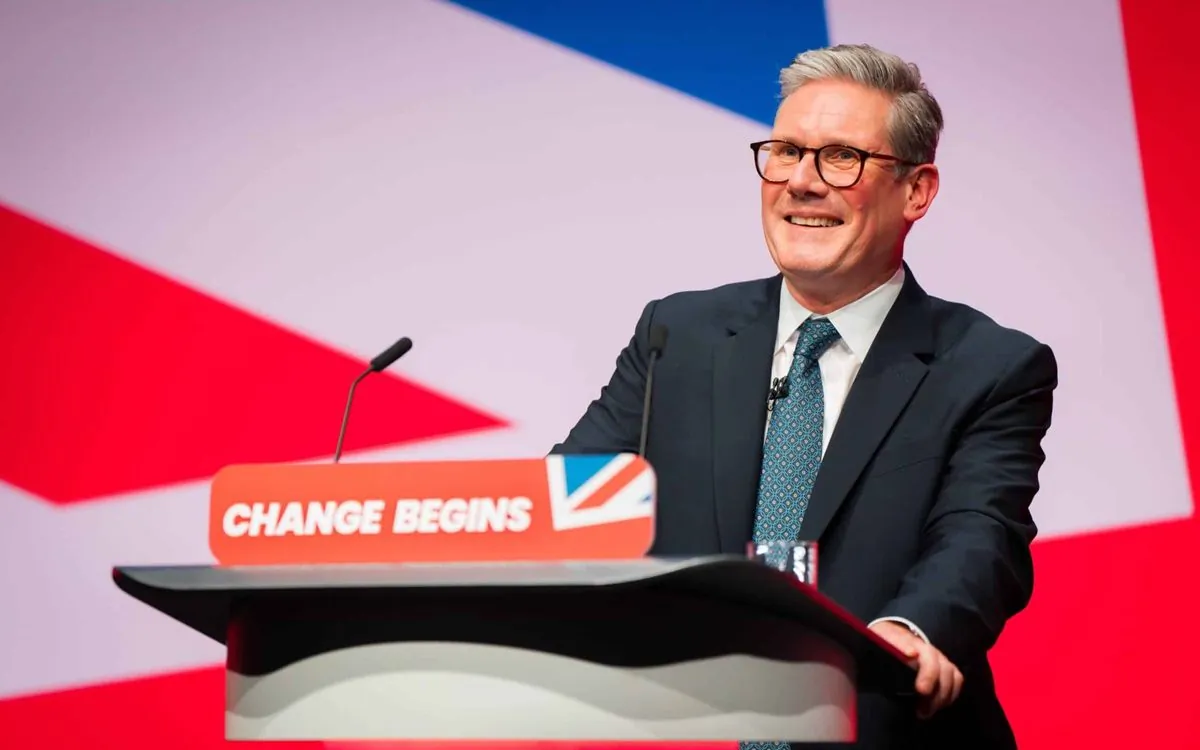Keir Starmer, the leader of the UK's Labour Party, recently addressed the party conference in Liverpool, outlining his vision for Britain's future. While the speech was well-received, it has sparked discussions about the direction of his government and its potential for transformative change.
Labour secured a significant majority in the July 4, 2024 elections, marking a shift from 14 years of Conservative rule. However, despite this victory, Starmer's administration has faced early challenges and criticism.
The upcoming budget, scheduled for October 30, 2024, is expected to be a defining moment for the new government. Starmer and Chancellor Rachel Reeves have been preparing the public for potential economic difficulties, echoing the austerity measures implemented by previous Conservative governments.
Labour's economic approach has drawn comparisons to the austerity era initiated by former Prime Minister David Cameron and Chancellor George Osborne in 2010. This strategy, which involved significant cuts to public services, was implemented in response to the 2007-2008 financial crisis.
Starmer's government faces a dilemma: having promised not to raise key taxes during the election campaign, they now have limited options for addressing the budget deficit. This has led to concerns that further cuts to public spending may be necessary, despite Labour's denials that this constitutes austerity.
The Labour Party's electoral victory in 2024 was notable for its disproportionate result. While securing a 174-seat majority, the party received fewer total votes than in the previous election. This outcome, attributed to a strategic campaign, has led to speculation about the party's long-term electoral prospects.
Starmer's approach to party management has also drawn criticism. In July 2024, seven Labour MPs were suspended for supporting a motion to reverse the Conservative policy limiting child benefits to two children per family. This decision, along with plans to restrict winter fuel payments, has angered some party members and trade unions.
"The first is that Labour continues to disappoint and is replaced in five years' time by a party even further to the right than it one it displaced. The second is that it succeeds in becoming a more efficient and slightly more compassionate version of its predecessor, a scenario in which 'in effect, [it] becomes a new, competent, small-C conservative party.' The third scenario is that the Labour Party seeks radical, center-left change for Britain. This final option is the least likely."
Despite concerns, the Labour government has initiated some reforms, including plans to nationalize railways, strengthen workers' rights, and expand onshore wind energy. However, questions remain about whether these changes amount to a significant transformation of British society.
As Starmer's government moves forward, it faces the challenge of balancing its cautious approach with the expectations for change that brought it to power. The coming months and years will reveal whether Labour can deliver on its promises of national renewal while navigating the complex political and economic landscape of post-Brexit Britain.
